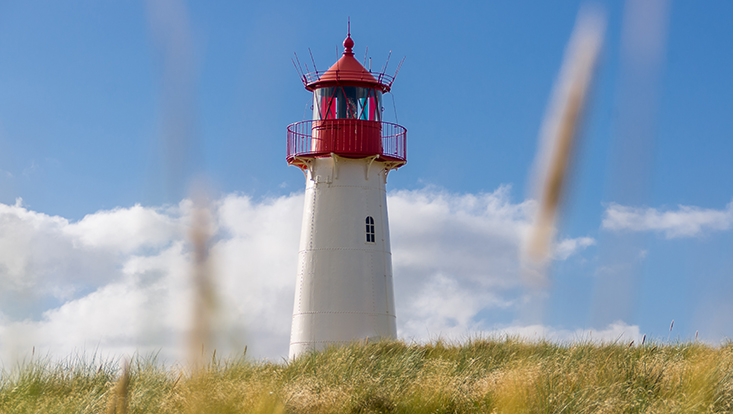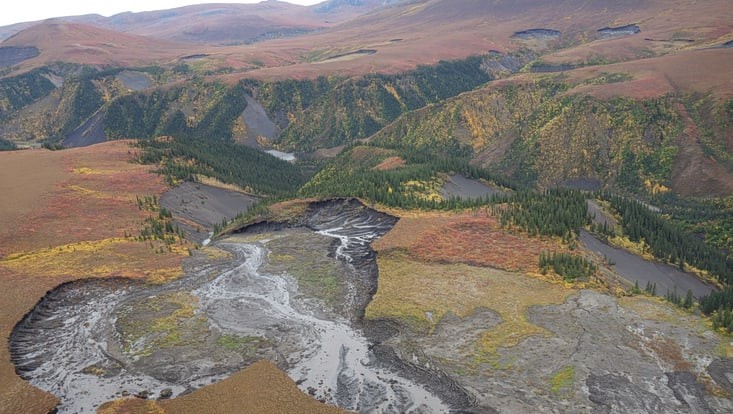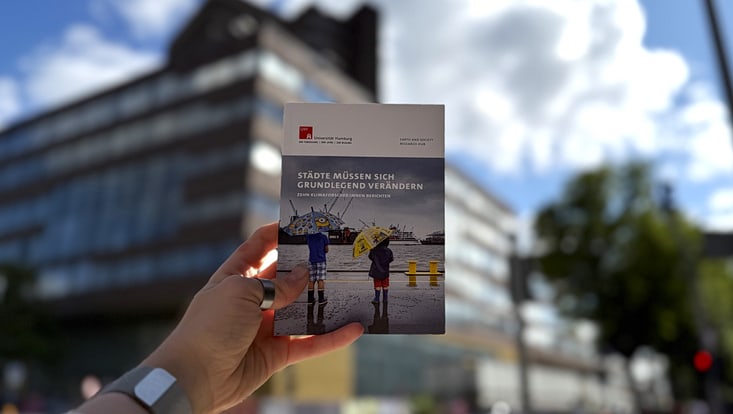What motivates North Frisians to engage in climate protection
29 July 2019, by CEN Universität Hamburg

Photo: unsplash.com/P. Baum
“We’re Frisians, you know? We have to prevent climate change, to fight it, limit it, and adapt to it.” My conversation partner summarizes the pragmatism and resolve I found in many of the people I came to know while conducting research in North Frisia. On North Frisian islands like Amrum and Föhr, the inhabitants can already feel the effects of climate change: they can see new patterns in the sand, which are the result of changed tides and rising sea levels. They’re now finding sardines and mullet in their fishing nets – species that normally live farther south. There are new plants to be found in the mud flats. And last but not least: storms have intensified, and storm surges have become stronger and higher.
The island-dwellers showed me some of these changes personally. And in interviews in their homes or in the great outdoors, they told me about which flowers now bloom earlier, and which bird species are newcomers to the islands. This represents the core of my research: at Universität Hamburg’s Center for Earth System Research and Sustainability (CEN), I’m investigating how connected people feel with their homes, and how perceived environmental changes motivate them to engage in climate protection. In this context I pay special attention to the type of language they use, which shows me how they truly feel, and what they think about the climate change in their homes.

Especially by observing nature, they can transform the abstract phenomenon of climate change into something they can concretely grasp. To do so, they use metaphors: for my interview partners, climate change has become – metaphorically speaking – the enemy. And stopping it is like a battle. They describe it e.g. as the Earth overheating, or in religious terms, as a “climate sin.” All of this imagery makes one thing clear: for the North Frisians, climate change represents a threat to their home.
In the course of my work, I have condensed these metaphors into six main concepts. They serve as interpretive patterns, which people use to assess climate change and decide whether or not to do something – and if so, what. I pursue an interdisciplinary approach, combining linguistic analysis and geography to unlock the secrets of the islanders’ lifeworld. This allows me to analyze their knowledge and values, to respond to them, and to better understand the people I’m dealing with.
That’s important, because researchers often ask themselves why average citizens do so little to combat climate change, despite the wealth of confirmed facts and scientific information. But this impression is misleading, because many people address the topic in their day-to-day lives: they do without air travel or owning a car, travel by train, and keep their energy consumption to a minimum. They want to do their part, even if it’s only in small ways. But the connection to their own lifeworld is an important motivator for their actions, not scientific facts alone.
My findings indicate that we absolutely have to take local knowledge into account when seeking to determine what level of climate protection is feasible. This will also involve negotiating on protective measures at the local level, because generally speaking, there is a great deal of interest in protecting the climate. And this motivation is to a great extent tied to people’s love for and sense of home.
In my experience, in this regard the islands’ local politicians are acting very prudently. They have strong ties to their island and the people living on it, take their concerns seriously, and are willing to go beyond the party line because they want to make their region “climate-fit.” In turn, the North Frisians’ enthusiasm has inspired me, because it showed me: Do something, even if it’s only something small!
Contact
Dr. Martin Döring
Universität Hamburg
Bundesstraße 55
20146 Hamburg
Martin Döring
Dr. Martin Döring is a linguist and expert for social sciences-based climate research. As researcher at Universität Hamburg’s Institute of Geography, his focus areas include social sciences-based coastal and climate research, science studies, and ecolinguistics.
Newspaper: This article was first published as a guest article in the Hamburger Abendblatt as part of a monthly series on climate research. Find all articles of the series here.


